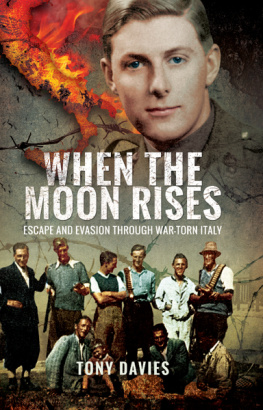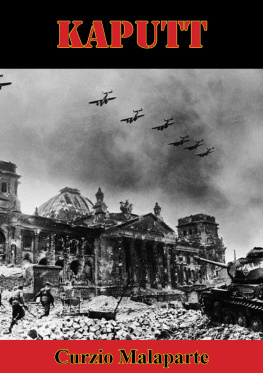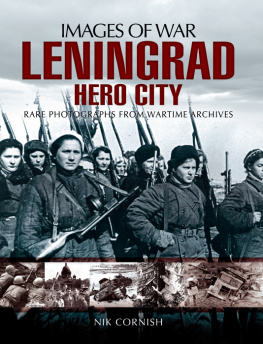CURZIO MALAPARTE
THE VOLGA RISES IN EUROPE
First published in Great Britain by Alvin Redman Limited 1957
Panther edition published October 1965
Translated by David Moore
CONTENTS
CHAPTER TEN THE UKRAINE, TOMB OF THE CORN
CHAPTER TWENTY-FOUR PRISON OF SHIPS
THE VOLGA RISES IN EUROPE
FOREWORD
W HEN , in June, 1941, at the outset of the German war against Soviet Russia, my despatches from the Ukrainian Front began to appear in the Corriere della Sera, the Italian public was filled with utter amazement - almost, one might say, with shocked indignation.
Quoted at length in the press of Britain, America, Switzerland and Scandinavia, my messages were welcomed by international public opinion as constituting the only objective document, the only impartial testimony, to have come out of Soviet Russia since the beginning of the campaign. Nevertheless, it seemed to a great many people in Italy that my observations and reflections were inspired not by an honest and courageous desire to tell the truth but by a personal sympathy with Communist Russia, and that, in consequence, the view of events which they presented was both biased and arbitrary.
Since my writings were completely at variance with the line that was being taken at the time by the Italian press - to wit, that the war against Russia was likely to be short and 'easy' - and since they even contradicted the opinions expressed by all the other special correspondents of my own newspaper, many of my readers came to the conclusion that I was animated by a spirit of partisanship; and there were not a few who denounced me as a defeatist, and loudly demanded that I be at once recalled from the Russian Front and placed under arrest. Today, all are in a position to appreciate that I saw things clearly, and that the 'sympathy' for Communist Russia with which I was reproached was nothing more or less than objective reporting, as Togliatti himself was forced to admit to me personally when, on Easter Day, 1944, he came to my house to congratulate me on the despatches in question.
But objective reporting was a crime even in those days. In September, 1941, by order of Goebbels, the German military authorities expelled me from the Soviet war-zone, notwithstanding the protests of General Messe, Commander of the Italian Expeditionary Force in Russia. Although the Fascist censors, both military and political, had, albeit with the greatest reluctance, permitted the publication of my despatches, Mussolini first threatened to send me back to Lipari, then kept me under house-arrest for a period of four months. But in January, 1942, by which time military events had confirmed the soundness of my judgment and the accuracy of my forecasts, he ordered me to be sent back to the Russian Front. This time, however, fearing German reprisals, I asked to be sent to Finland, where Hitler had no authority. My request was granted, and I remained in Finland for two years, until Mussolini's arrest. Then, on July 27th, 1943, I returned to Italy in order to assume my post of responsibility in the struggle against the Germans, which I considered both inevitable and imminent.
During the summer of 1941 I was the only front-line war-correspondent in the whole of the U.S.S.R. (I should add that I was accompanied throughout by Lino Pellegrini, whom I had selected as a companion so that I might have a reliable witness to the truth of all that I wrote.) At the time there were no other Italian war-correspondents either in the Ukraine or on any other part of the Russian Front, from Murmansk to the Black Sea. Even the British and American correspondents, who were forbidden by the Soviet authorities to go to the front, had remained in Moscow, with the result that their writings were characterized by the forced tone, the episodic manner, the vague language and the rhetoric of men who write from hearsay and not from personal experience. To confirm this one need only read the despatches which the American writer Erskine Caldwell, author of God's Little Acre and Tobacco Road, subsequently assembled in a volume entitled Moscow Under Fire (Hutchinson, London - New York - Melbourne, 1942). I record these facts not out of vanity but in order to emphasize what the Anglo-American press itself freely admitted at the time - namely, that the only objective writing on the German war against Russia came from an Italian and that, unlike the British and American correspondents, citizens of free, democratic countries, I did not undertake to describe events of which I had no first-hand knowledge, nor did I stoop to make propaganda in favour of one side or the other. Apart from the fact that I was the only front-line war-correspondent in the whole of the U.S.S.R., and hence the only one in a position to see how matters really stood, I should mention that my long-standing acquaintance with Soviet Russia and her problems helped me greatly to assess the significance of events and to foresee the inevitable course of their development. What I observed on the battlefield merely confirmed in the most damning fashion what I had been saying and writing about Communist Russia for the last twenty years and more.
In the course of my long personal experience of things Russian I have always refused to judge the Soviet Union from what might be termed a 'bourgeois' viewpoint - in other words, from a viewpoint that is necessarily not objective. 'Objectivity is not the prime characteristic of the bourgeois outlook,' I wrote in my preface to Fulop-Miller's II volto del bolscevismo (Bompiani, 1930). And I added that 'the surest defence of the bourgeois way of life against the dangers of Bolshevism ought to consist in an understanding of the revolutionary phenomena of the modern age. Failure to understand these phenomena is the surest sign of bourgeois decadence': and this not only in Italy (where the bourgeoisie has remained faithful, so far as Russia is concerned, to those naive prejudices so egregiously exemplified in the short essay of Francesco de Sanctis, II testamento di Pietro il Grande, written in 1864 and published in the journal of the Constitutional Unitarian Association of Naples, L'Italia), but in all the countries of Europe, England especially. As to the English bourgeoisie, the judgment formulated by the liberal English economist Keynes in his famous little book, A Short View of Russia (Hogarth Press, London, 1929) is still of unique interest, and in a sense represents the last word on the subject. I declare that it is impossible to understand Soviet Russia without first ridding oneself of bourgeois preconceptions; and it is obvious that those who do not understand Soviet Russia are not capable of fighting her, still less of prevailing over her.
Among the many bourgeois preconceptions that exist about Communist Russia the most persistent is that of the man who regards Bolshevism as a typically Asiatic phenomenon. This explanation of the Bolshevik revolution and its problems is too simple and convenient to be accepted with safety. The title of this book, The Volga Rises in Europe (the original title, which the Fascist censors vetoed, was different, as I shall explain in due course), is in fact intended to draw attention to this childish preconception. As long ago as 1930, in the preface to Fiilop-Miller's essay mentioned above, I wrote that 'the face of Bolshevism is not, as so many believe, an Asiatic face. It is a European face.' The truth is that Bolshevism is a typically European phenomenon.
Behind the Doric columns of the Pyatlyetki, the Five Year Plans, behind the rows of figures of the Gosplan, there stretches not Asia, but another Europe: the other Europe (in the sense in which America too is another Europe). The steel cupola of Marxism+Leninism+Stalinism (the gigantic dynamo of the U.S.S.R. according to Lenin's formula: Soviet+electrification=Bolshevism) is not the mausoleum of Genghis Khan but - in the very sense that bourgeois folk find so distasteful - the
Next page








